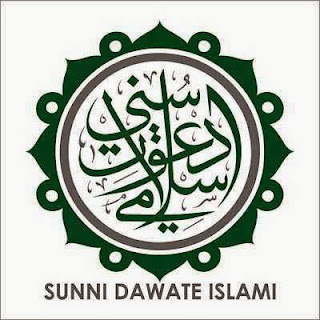Almighty Allah says in the Holy Quran,
"And to every nation we have appointed acts of devotion (sacrifice) that they may mention the name of Allah on what He has given them of the cattle quadrupeds; and your God is one God, therefore to Him should you submit, and give good news to the humble whose hearts tremble when Allah is mentioned, and those who are patient under that which afflicts them".
The act of sacrificing an animal is regarded as affecting the heart, as it is connected with righteousness, with submission to Allah, with humbleness of the heart, and patience under sufferings. So when one slaughters with the proper accompanying Intention and not for the sole purpose of eating the flesh on this occasion, one is again complying with the laws in the Holy Quran and completes yet another of the pillars of Islam.
The animal sacrificed is symbolic of the animal in man (man's nature). So, when he slaughters, he is reminded of the necessity to eliminate that "animal nature" which he has within him. It actually signifies the sacrifice of the sacrificer himself, and becomes the outward symbol of his readiness to lay down his life in the cause of the Supreme Creator of the universe.
This sacrifice by the Muslims throughout the world on this particular occasion, is intended to let Muslim hearts beat in unison with the hundreds of thousands who have gone on Pilgrimage to Mecca (which is also a pillar of Islam and is compulsory on Muslims who can afford going there).
They re-enact, as it were, the beautiful incident of old, where Almighty Allah had commanded Prophet Abraham (peace be upon him) to sacrifice his then only son. On finding him obedient and prepared to act on His command, Allah submitted a ram for him to slaughter instead of his beloved son.
Our Holy Prophet Muhammad (peace and blessings of Allah be upon him) confirmed this act, and always covered his head with respect during sacrifice. He would lay the animal down and gently stroke it, then, placing his foot on the body and uttering the words "In the name of Allah, Allah is Great. O Allah! This is a sacrifice from You and is for You" he would speedily severe its throat, allowing the blood to flow readily with the least possible pain to the animal.
The sacrifice is done after the I'd prayer is over . The chosen animal must be free from any apparent physical defect and must be fully grown and healthy. In the case of a goat or sheep, one suffices, but if it a camel or cow, seven may be partners thereto.
Because many poor and beggars in the community cannot afford to sacrifice, this occasion allows for charity, and when the sacrifice is over the meat is divided as is necessary (one third minimum be allotted for distribution to the poor), the meat is delivered to the homes of the poor so that they too can enjoy and participate on this day of festival.
As Islam does not permit wastage, whatever is left over of the meat may be dried, cured or prepared, so long as it is consumed and not wasted. The skin also must be disposed of and the funds used for charity.




